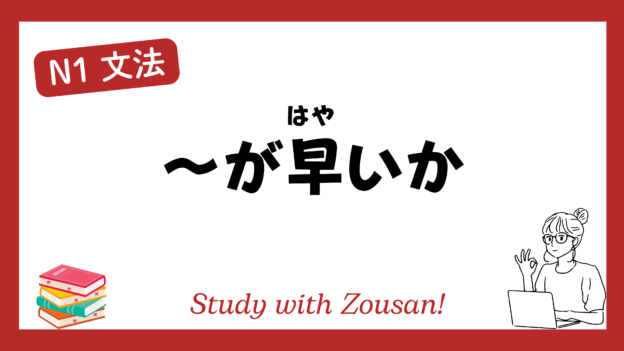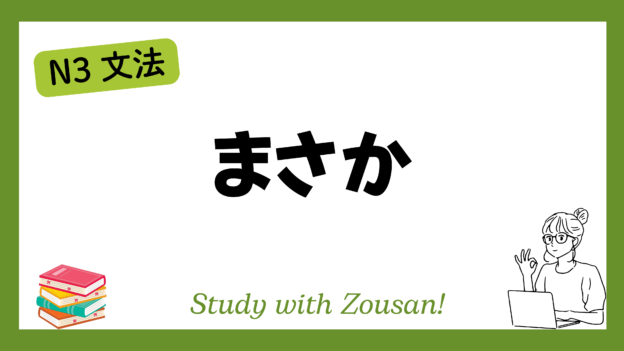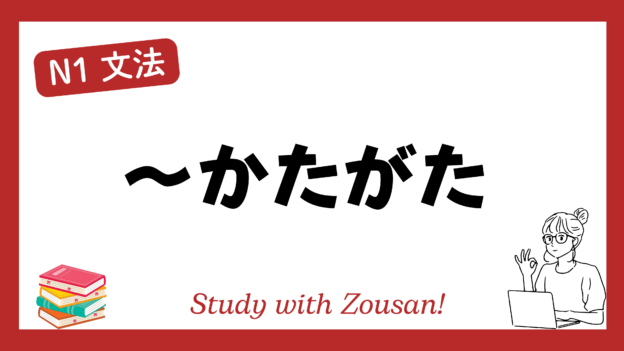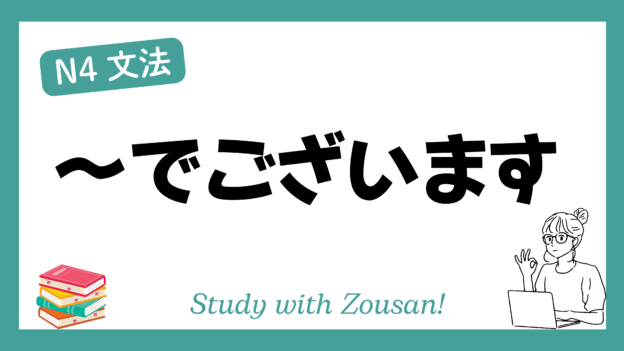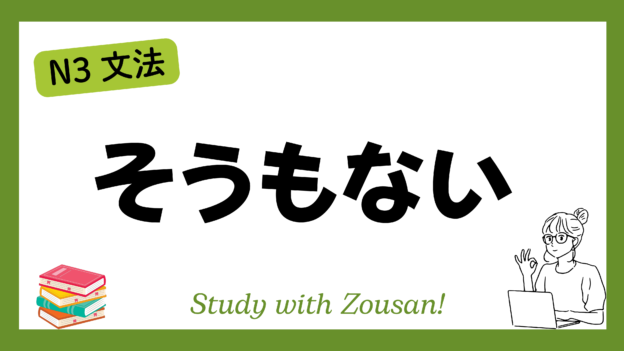N1文法:~が早いか
Meaning: “As soon as…”, “No sooner than…”
This structure is used to describe that one action occurs almost immediately after another has finished. It emphasizes the quick succession of events, indicating the promptness of the second action.
※Note: This structure is often used in written language or more formal contexts and is not commonly used in everyday conversation.
Structure:
| Verb (dictionary) + | が早いか |
Example:
-
-
-
🌟 ベルが鳴るが早いか、生徒たちは教室を飛び出した。
(ベル が なる が はやい か、せいと たち は きょうしつ を とびだした。)
As soon as the bell rang, the students rushed out of the classroom. -
🌟 彼は家に帰るが早いか、テレビをつけた。
(かれ は いえ に かえる が はやい か、テレビ を つけた。)
No sooner had he returned home than he turned on the TV. -
🌟 ドアを開けるが早いか、犬が飛び出してきた。
(ドア を あける が はやい か、いぬ が とびだしてきた。)
As soon as I opened the door, the dog came running out. -
🌟 彼が発言するが早いか、みんなが騒ぎ出した。
(かれ が はつげん する が はやい か、みんな が さわぎだした。)
No sooner had he spoken than everyone started to stir. -
🌟 雨が降り始めるが早いか、彼は傘をさした。
(あめ が ふりはじめる が はやい か、かれ は かさ を さした。)
As soon as it started raining, he opened his umbrella. -
🌟 電車が止まるが早いか、乗客たちは一斉に降り始めた。
(でんしゃ が とまる が はやい か、じょうきゃく たち は いっせい に おりはじめた。)
No sooner had the train stopped than the passengers started getting off all at once. -
🌟 彼女が部屋に入るが早いか、電話が鳴り始めた。
(かのじょ が へや に はいる が はやい か、でんわ が なりはじめた。)
As soon as she entered the room, the phone started ringing. -
🌟 試合が始まるが早いか、観客は歓声を上げた。
(しあい が はじまる が はやい か、かんきゃく は かんせい を あげた。)
As soon as the match started, the crowd cheered. -
🌟 父が帰宅するが早いか、犬は玄関に走っていった。
(ちち が きたく する が はやい か、いぬ は げんかん に はしっていった。)
No sooner had my father arrived home than the dog ran to the entrance. -
🌟 お金を手にするが早いか、彼は買い物に出かけた。
(おかね を て に する が はやい か、かれ は かいもの に でかけた。)
As soon as he got the money, he went out shopping.
-
-



